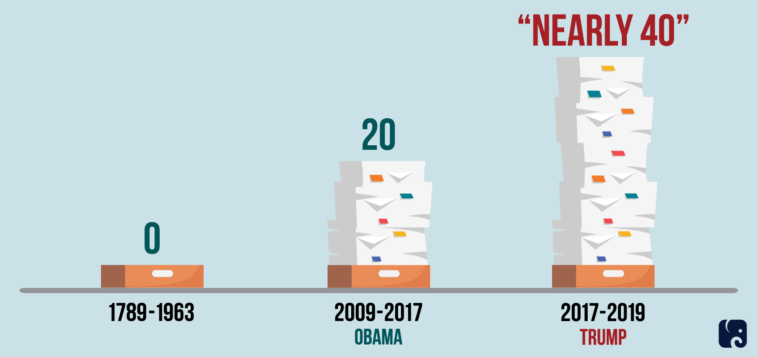The Supreme Court of the United States recently made a ruling that puts restrictions on federal judges issuing nationwide injunctions. This could potentially destabilize various lawsuits that had caused Trump administration policies to be halted. Several federal judges had previously imposed nationwide injunctions, countering President Trump’s command to not grant citizenship to children born in the U.S. to parents who are either illegal immigrants or are on a temporary stay. The Supreme Court ruling was made in connection with a lawsuit concerning this rule, although it is not yet evident whether it will influence the enforcement of birthright citizenship restrictions.
Expectedly, numerous lawsuits originating between the advent of the new administration and mid-May were subjected to around 40 nationwide injunctions, tackling diverse subjects such as funding allocations, electoral processes, and equity and diversity considerations. Attorneys involved in these cases, however, are not backing down. They emphasize that the Supreme Court ruling did not close off all possible legal avenues of achieving a significant, nationwide impact.
A significant event occurred on the 13th of June when Denise J. Casper, a U.S. District Judge in Massachusetts, imposed a ban on Trump’s efforts to reform electoral procedures. This proposed reform, put forth via an executive order by President Trump in March, demanded that documentary proof of citizenship be required from anyone registering to vote in federal elections, only mailed votes received by the Election Day would be accepted, and federal election grant funding would be conditional upon states’ compliance with these new rules.
California had been one of the contenders in the lawsuit challenging this reform. Following the recent Supreme Court decision, the state’s attorney general, Rob Bonta, communicated via email that his office was examining the full implications of the ruling for all of the state’s ongoing litigation.
Another notable case occurred in April, when a federal judge in California prevented the administration from withdrawing funds allocated for the legal representation of unaccompanied migrant children. Following an appeal launched by the administration, the U.S. District Judge Araceli Martinez-Olguin in San Francisco stated it was impossible to narrow the injunction’s scope according to geography or party involved.
Judge Martinez-Olguin provided further reasoning, stating, ‘Given that a single contract governs the allocation of the said funding, which is used for the provision of direct legal services across the nation, there exists no viable means to limit the scope of the injunction.’
A plaintiff’s attorney, Adina Appelbaum, who also serves as the program director for the Amica Center for Immigrant Rights, didn’t perceive the Supreme Court’s ruling as greatly affecting her case. However, she criticized the judgement strongly, arguing that the Supreme Court had failed in its duty of safeguarding the citizens, which also include immigrants.
Flashback to February, an executive order that aimed to terminate government support towards diversity, equity, and inclusion was effectively obstructed by U.S. District Judge Adam Abelson in Baltimore. He commanded a preliminary injunction which prevented the administration from halting or modifying any federal contracts viewed as related to equity. His decision was subsequently put on hold by an appeals court.
The plaintiff’s representatives in this case were attorneys from Democracy Forward. The group’s president and CEO, Skye Perryman, commented about the Supreme Court decision, expressing her disappointment. She portrayed this ruling as an additional hindrance to seeking legal redress, but also noted that it was somewhat limited and could potentially allow some decisions to still block the administration’s actions.
In another event this year, a federal judge in the month of February stopped the administration from blocking funds to health care facilities which provide gender-affirming care to patients below the age of 19. U.S. District Judge Brendan Abell Hurson from Maryland, supporting his motion for a nationwide injunction, asserted that a partial approach was not applicable in this case.
The Judge’s rationale was clear: ‘The consequence of restricting agencies from making funding conditional upon some medical institutions, whilst still allowing others to continue such conditional funding, would be widespread confusion. The decision was appealed and paused as the Supreme Court examined similar matters related to underage transgender health care.
Interestingly, the Supreme Court has recently affirmed a law in Tennessee that prohibits certain health care treatments for transgender youth. Omar Gonzalez-Pagan, a senior counsel for the Lambda Legal Defense and Education Fund Inc., and also one of those who secured Judge Brendan’s ruling, informed that the legal team representing the plaintiffs was in the process of assessing the impact of the Supreme Court’s decision on this case.
According to Gonzalez-Pagan, he believed that the Supreme Court acknowledged that suits of a great enough magnitude, such as this one, would sometimes necessitate ‘systematic, universal relief.’
In another development in May, a Rhode Island judge countered an executive order that suggested the dissolution of federal agencies aiding libraries, museums, minority businesses, and participants in labor disputes. The administrative body appealed against this decision.
Rhode Island, being one of the plaintiffs, continued the legal battle with the support of the state’s attorney general, Peter F. Neronha. Following the announcement of the recent Supreme Court ruling, attorney Neronha pledged in a statement to continue using every legal resource available to protect all Americans from the ‘progressively dangerous whims’ of the President.

